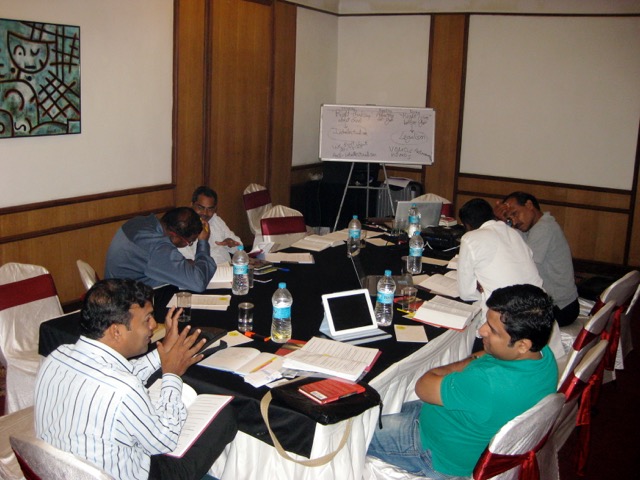Pastor Mohan’s name has been changed for his protection.
“We will beat them, and all the things they have will be taken.”
This ultimatum from a Hindu extremist group threatened any Christians who would gather to worship in their village. Some members fled to the nearby city of Ranchi, where they found refuge through a local pastor. Those who remained discovered the threats were not empty.
Militants recruited a mob from 21 surrounding villages in northern India. The group descended on the congregants on Sunday morning, yelling insults, tearing up Bibles, and using large bamboo sticks to strike men and women alike.
One woman recounted the September 2014 attack to pastor Mohan, whose congregation in Ranchi planted her village church. The mob had chased her, yelling, “Let’s kill her! Finish her off!” When she sought refuge inside her home, they threw large stones on the corrugated roof until it collapsed. Gaining entrance, they beat her with the sticks, smashed every possession, great and small, and stole her legal documents and life’s savings.
 Growing Threat
Growing Threat
Pastor Mohan’s congregation in Ranchi—the large capital city of the state of Jharkhand—and the churches they have planted face increasing persecution. Other churches and even Muslim groups also fall prey to the more violent expressions of Hindu nationalism.
Though India’s Constitution guarantees religious freedom for all citizens, the government needs to protect those freedoms or persecutions will likely continue. India’s recently-elected Prime Minister, Narendra Modi, captured the sentiment of this radical movement when he asserted that Hinduism is “not a religion, but a way of life.” To be Indian, the argument goes, is to be Hindu.
This mentality engenders a bitter disdain toward conversion to other, “less Indian” ways of life. The mob that attacked the village church justified their actions by false accusations that the church forced Hindus to become Christians. While Hindu nationalist organizations renounce such violence, human rights groups have charged those organizations with creating an environment that fosters it.
Pastor Mohan fears the government may soon require all organizations—churches included—to host shrines to Hindu deities. At least one other northern state has seen overt persecution of Christians and Muslims by radical groups. The leader of one such Hindu organization told The Indian Times (Agra, Dec. 9, 2014) that they’ve taken possession of around 60 churches across Uttar Pradesh and “reconverted” the Christians to Hinduism.
 Theology of Joy and Suffering
Theology of Joy and Suffering
The pastor was hardly prepared for such trials. Unexpectedly called to the pastorate in 2008, Mohan began his ministry with little experience or training and no theological framework for suffering. The Christian community surrounding him was more influenced by prosperity preaching than by faithful biblical exposition.
In 2009 Mohan sought theological help by enrolling in a three-year program with Dan Smythe of the Global Training Network. Dan used materials provided at no cost by The Gospel Coalition’s International Outreach to lead Mohan and 23 other northern Indian pastors through three books: D. A. Carson’s The God Who Is There and John Piper’s The Dangerous Duty of Delight and Finally Alive.
In a later e-mail to Dan, Pastor Mohan expressed his gratitude for the Packing Hope resources: “This is not an exaggeration; this is some of the best teaching I have ever received.”
Mohan’s studies have deeply influenced his teaching and preaching ministry to his churches and his training of other pastors. Amid a religious people who worship 300 million impersonal gods, he proclaims the one personal and loving God who is sovereign over history. He calls the church to pursue joy in Jesus over satisfaction in the comforts of this life. He distinguishes the pure gospel of “Christ crucified” from promises of earthly health, wealth, and prosperity. In all of this, he strives to nurture Christians who will be both humble and strong in the face of persecution.
 The pastor’s message is making an impact. The village woman attacked by the mob testifies that the truth of God’s Word pulsated through her heart when her life was at stake.
The pastor’s message is making an impact. The village woman attacked by the mob testifies that the truth of God’s Word pulsated through her heart when her life was at stake.
“Even if I am beaten, it is all joy. Those of us who were beaten are the privileged ones. So we live for Christ, and when we die, we die for Christ. We have completely given our lives into the hand of Jesus.”













 Growing Threat
Growing Threat Theology of Joy and Suffering
Theology of Joy and Suffering



















